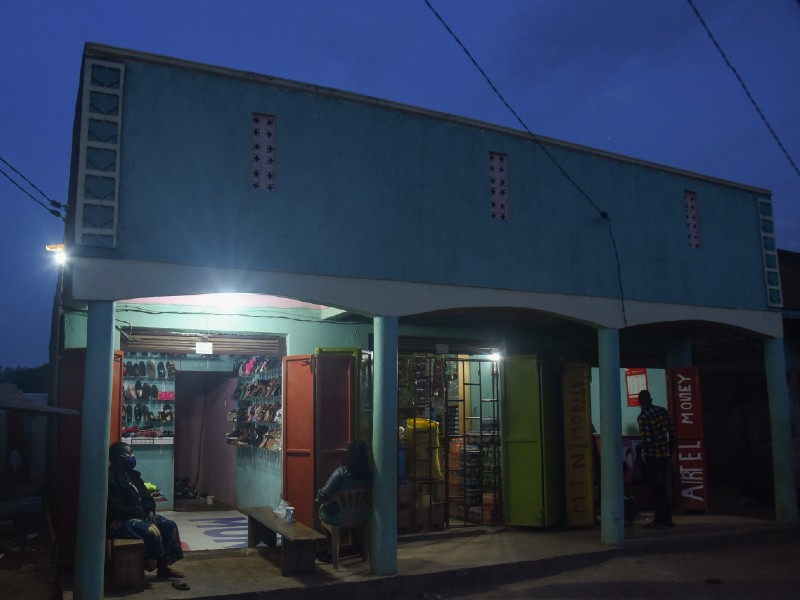Access to electricity means shops can stay open longer, boosting potential economic benefit. Image: Power for All. A newly launched Utilities 2.0 Twaake pilot project unites distributed renewable energy companies in Uganda to provide clean power for all through an integrated energy approach.
Led by Uganda’s largest power utility Umeme, coordinated by Power for All and funded by The Rockefeller Foundation, the Utilities 2.0 Twaake pilot project relies on an integrated energy approach.
Kristina Skierka, Power for All CEO, said: “Neither centralised or decentralised energy can end energy poverty alone. However, through partnership and leveraging comparative strengths, traditional utilities and innovative DRE companies can create a new frontier in the fight to end energy poverty.”
Only 28% of Uganda’s population can access electricity via the national grid. According to the World Bank it would take more than 10 million customers for Uganda to achieve universal electricity access. Since the average grid extension connection costs $1,400, if grid extension is the only method of service provision, the required investment would be in the range of $7 billion. This would be nearly 20% of Uganda’s current annual GDP.
The Utilities 2.0 Twaake pilot is designed to at least halve this cost by relying on integrated energy. This combines centralised and decentralised technology including solar home systems, minigrids, grid and smart grid systems. All are combined into an intelligent and interactive energy network that can deliver customer-centric, clean energy solutions to end energy poverty at the lowest cost, transforming billions of lives faster than isolated approaches. Using productive use applications to drive energy demand
Selestino Bubungi, Umeme managing director and CEO, said: “Uganda is now facing a challenge of access to clean energy with about half of the population having access, of which 25% are connected to the grid and 26% using off-grid solutions like solar.
“Twaake is coming in to bridge the gap of delivering clean energy to the households. This partnership will ensure that we deliver clean energy to the population in this pilot phase, pick lessons and use it to scale up. The partnership will assist to drive Uganda’s electricity agenda.”
According to recent studies by Duke University and Power for All , connection costs can be reduced by half through reducing upfront capital costs by leveraging a utility’s ability to access cheaper capital while increasing the value of the customers through productive use applications which drive energy demand.
Through this integration, electricity customers in […]
